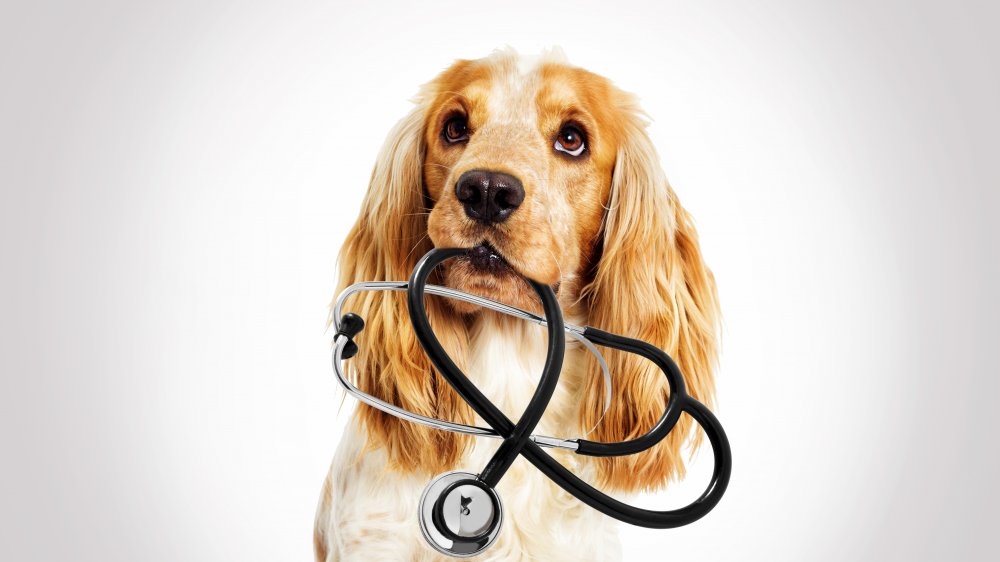Here's How Dogs Can Actually Detect Cancer
Over the ages, dogs have been used to perform many odd jobs alongside humans. From working in public safety, mental health and criminal justice sectors, the addition of a canine pal can prove beneficial in many situations. In fact, man's best friend may be providing helpful additions to the medical industry very soon, as Cancer Health cites one recent study pointing to the possibility that dogs can detect cancer.
A 2019 report in Experimental Biology found that dogs can utilize their noses — which are over 10,000 times as accurate as any human's — to sniff out cancer cells. The canines in the study could "pick out blood samples from people with cancer with almost 97 percent accuracy", according to Science Daily. "Although there is currently no cure for cancer, early detection offers the best hope of survival," explained Heather Junqueira, a lead researcher who performed the study. "A highly sensitive test for detecting cancer could potentially save thousands of lives and change the way the disease is treated."
The nose knows
Cancerous cells produce a specific odor that dogs can easily pick up on, according to the American Kennel Club. Canines can locate a cancer site with their powerful noses, or even recognize the odor from waste matter like breath, even in very early stages. Actress Shannen Doherty claims her German shepherd, Bowie, could detect her breast cancer before any screenings could. "When I got back from surgery, [Bowie] again was kind of right in this area," she told Entertainment Tonight. "Then when I had my first chemo, she would sniff my entire body up and down. And she was always protective before, but she has become this crazy, protective dog."
Although widespread use of canine detection of cancers has yet to be seen, further research in this field can result in accurate screenings that are cheaper and less invasive than traditional cancer screenings. Researchers working under Junqueira are currently planning to separate samples of cancerous cells into chemical components, and present them to dogs, in hopes of isolating the specific substances in the odor that dogs detect. "This work is very exciting because it paves the way for further research along two paths, both of which could lead to new cancer-detection tools," said Junqueira. "One is using canine scent detection as a screening method for cancers, and the other would be to determine the biologic compounds the dogs detect and then design cancer-screening tests based on those compounds."

